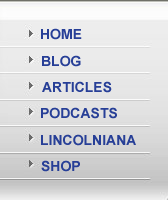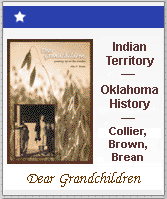
 |
 |
|
| |
||


How We Elected LincolnA.J. Dittenhoefer
<<Prev intro I II III IV V VI VII VIII IX Next>> page 41: V THE JOURNEY TO THE CAPITALTHE trip from Springfield to Washington was 1 one of continuous enthusiasm, the President-elect receiving an ovation at every city en route. The first halt was made at Indianapolis, where lie addressed a meeting, at which the famous War Governor Morton presided. On this occasion he declared that "the preservation of the Union rests entirely with the people." On the same day he spoke before a joint meeting of the Indiana Legislature, choosing for his theme: "The Union, is it a marriage bond or a free-love arrangement?" When about to cross the Ohio River into Virginia, a slave State, lie gave it as his opinion that devotion to the Constitution was equally great on both sides of the stream, and he went on to emphasize the right of the majority to rule. Arriving at Cleveland, he made an address in which he referred to the apprehended trouble as "altogether artificial, due only to differences in page 42: political opinion." "Nothing," he declared, "is going to hurt the South; they are citizens of this common country and we have no power to change their conditions. What, then, is the matter with them? Why all these complaints? Doesn't this show how artificial is the crisis? It has no foundation in fact. It can't be argued up and it can't be argued down. Let it alone, and it will go down of itself." This would seem to show that Mr. Lincoln really believed that the trouble in the South would blow over. How sadly he was mistaken! It was not until he arrived in the East and learned from trustworthy sources of the danger confronting him between New York and Washington that he accepted the situation as it actually existed. Buffalo was the next stopping-place, and the mayor and a large assemblage welcomed the President-elect. The stability of the Union was the speaker's theme, but he reiterated that he relied more upon divine assistance than help from human hands and hearts. At Albany Governor Morgan presided over a public meeting, at which Lincoln again declared that he would be "President not of a party, but of a nation." Later in the day he delivered another address, in which he said that "the mightiest of tasks confronted the humblest of Presidents." page 43: He remained two days in New York City, where he delivered two addresses. To a large audience, over which the unsympathetic Democratic mayor, Fernando Wood, presided, Mr. Lincoln expressed his doubts as to the situation in quaint language. He likened the Union to a ship and its traditions to the cargo, saying that he was willing and anxious to save both the ship and cargo, but if not both, the cargo would have to go overboard for the safety of the ship. I heard that address and it gave me the impression that Mr. Lincoln had become bolder in the expression of his feeling against the continuance of slavery in the South. To-day it recalls itself to me as being the first gleam of emancipation. The speaker was more grave and serious than usual; his voice was harsh and his manner indicated either fatigue or anxiety regarding the future. I detected a decided change in Mr. Lincoln since seeing him at Springfield; he was a man carrying a burden that grew heavier day by day. The journey toward Washington was resumed on February 9.1, a halt being made at Trenton for the President-elect to address, separately, the Senate and the Assembly of New Jersey. Later in the afternoon the train reached Philadelphia, where a reception presided over by the page 44: mayor was tendered to him. In consequence of reports of danger he was practically smuggled away from Philadelphia, being hurried in a closed carriage to the old Prince Street station, on South Broad Street, where an engine and one car was waiting. This was run through to Baltimore and thence over the Baltimore and Ohio branch to Washington. A large number of citizens in Baltimore, not confined by any means to the mob, were bitterly hostile to "the Yankee President," as they derisively described the man from Illinois. That the precautions taken were justified was proven within two months by the murderous assault upon the Sixth Massachusetts regiment during its march through Baltimore. A little over four years later, when Lincoln 's funeral cortege passed through Baltimore, a complete change of feeling had taken place. In the selfsame city which had been considered unsafe for President Lincoln to pass through, the first great demonstration of grief occurred. The President-elect arrived in Washington on February 27, and although no outward evidence of the coming storm was observable, there was an intense feeling of anxiety among all classes at the national capital; it must be remembered that most of the office-holders were Southerners and that the city was filled with residents sympathetic page 45: with the South. In a reply to a serenade at his hotel on the evening of February 28, Lincoln lamented the misunderstanding that existed between the people of the North and the South, and reiterated his determination to enforce equal rights under the Constitution to all citizens. He pledged an impartial administration of the law. I was present at the delivery of 1\Ir. Lincoln 's first Inaugural Address. It was a powerful appeal to the South, couched in language that will, live, not to embark in a civil war. In it occurs this language that thrills us as we read it: In your hands, my dissatisfied fellow-countrymen, and not in mine, is the momentous issue of civil war. The Government will not assail you. You can have no conflict without being yourselves the aggressors. You have no oath registered in heaven to destroy the Government, while I shall have the most solemn one to "PRESERVE, PROTECT, AND DEFEND IT. I am loath to close. We are not enemies, but friends. We must not be enemies. Though passion may have been strained, it must not break our bonds of affection. The mystic chords of memory, stretching from every battlefield and patriot grave to every living heart and hearthstone all over this loved land, will yet swell the chorus of the Union when again touched, as surely they will be, by the better angels of our nature. The President impressed me as being serious in manner. His voice sounded shrill, but he was talking at high pitch in order that he might be page 46: heard by as many as possible of the immense crowd. Little by little his auditors warmed toward him, until finally the applause became overwhelming, spontaneous, and enthusiastic. Then, for the first time, it dawned upon me that Lincoln was not only the strong man needed at this crisis of our national affairs, but one of the few great men of all times; and I may say safely that my conviction was shared by all within hearing of his voice. His appeal, however, fell on listless ears, for thirty-nine days later the cannon were booming at Fort Moultrie and Fort Sumter.
<<Prev intro I II III IV V VI VII VIII IX Next>>
© 2006 Alta Omnimedia. This work may be used freely by individuals for research, teaching, and personal use as long as this statement of availability is included in the text. Feel free to point to this Web page if you'd like, but please don't just copy its contents. |
 |
Copyright © 2005-2016 Alta Omnimedia. All Rights Reserved.



